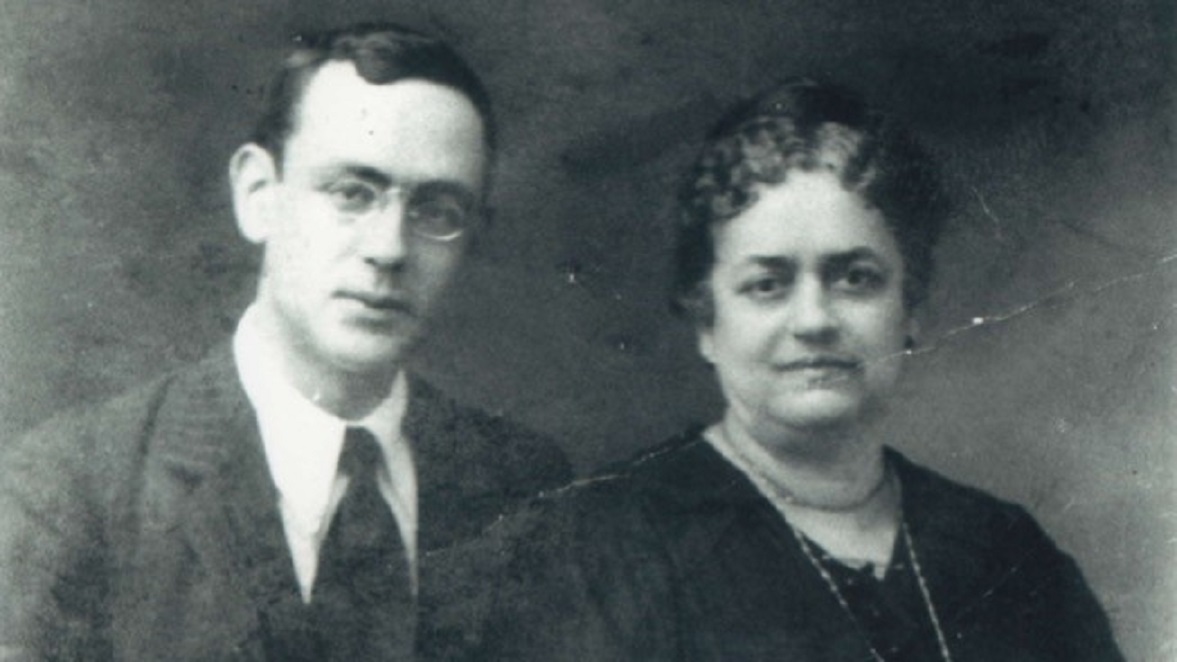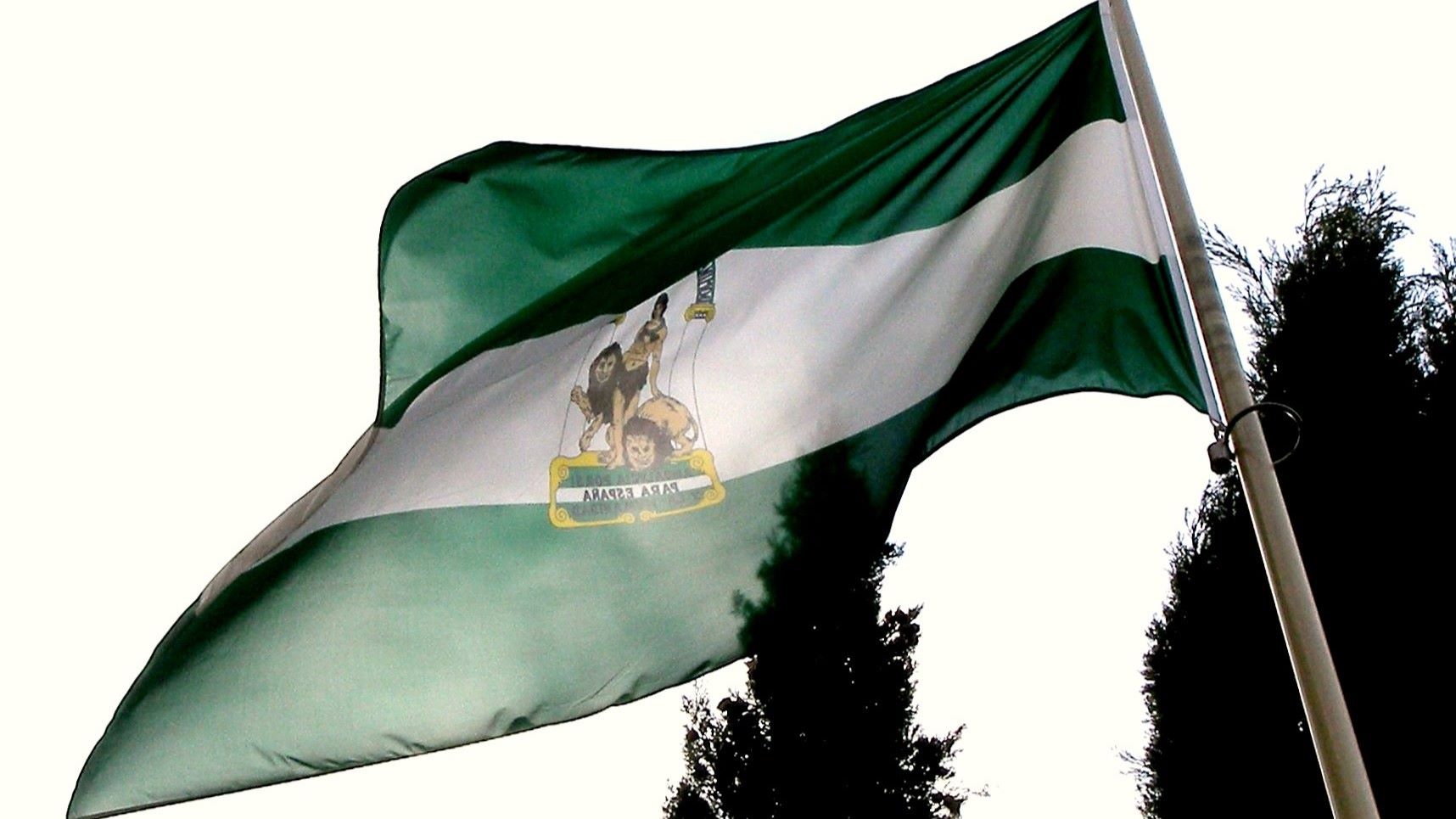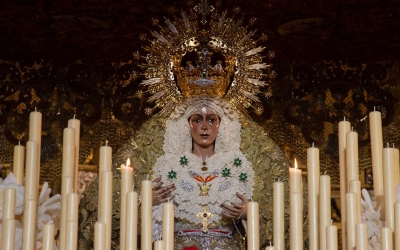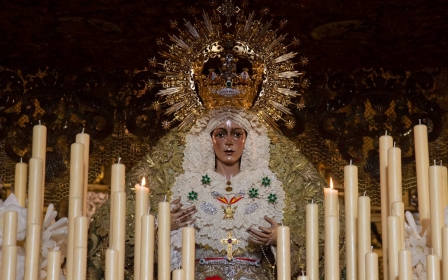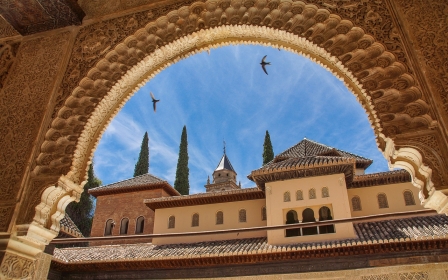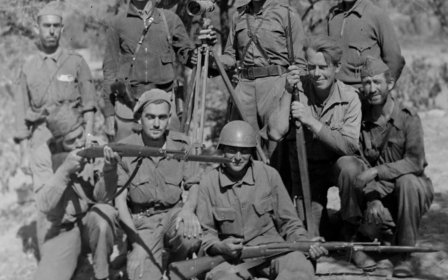Was Blas Infante, the father of Andalusian nationalism, a crypto Muslim?
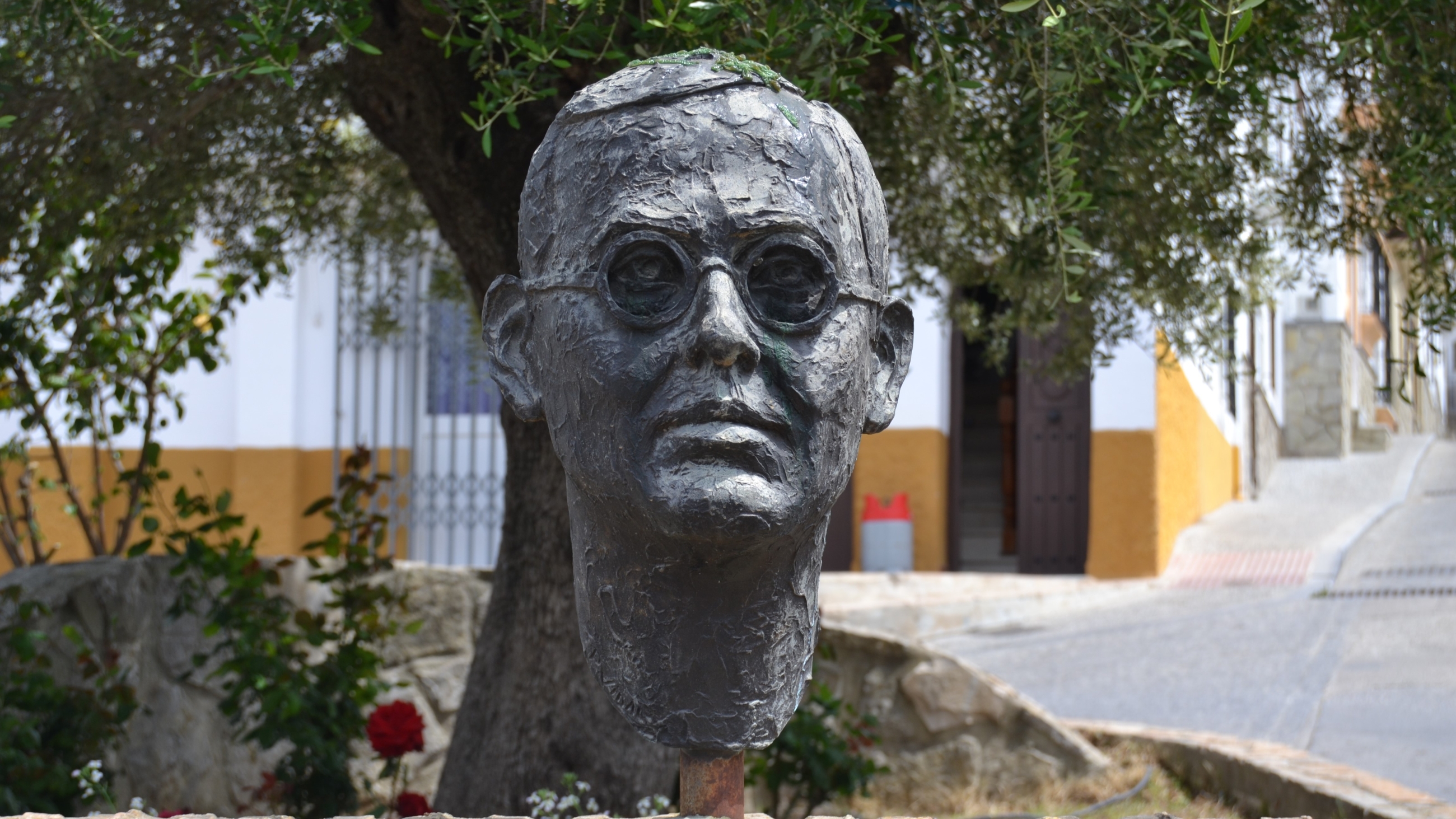
The thought of Islam in Andalusia beckons imagery of the palace of Alhambra, the philosophy of Averroes (Ibn Rushd) and the Islamic “golden age” - nostalgic memories cherished in some quarters and viewed with contention in others.
While the region is firmly Catholic today, could it be that an alleged crypto-Muslim helped shape the formation of 20th century Andalusian revivalism?
Blas Infante Perez de Vargas, known simply as Blas Infante, is honoured as the father of Andalusian nationalism.
Born in 1885, in the province of Malaga, he is remembered every 28 February on “Dia de Andalucia” or Andalusia Day, which marks the referendum that established Andalusia as an autonomous community in Spain.
Executed at the age of 51 by the Franco regime in 1936, Infante is remembered as a martyr for the Andalusian nation and while the rumours that he was a Muslim might not be true, his sympathies towards Islam are well established.
During his writing career, he produced numerous works, ranging from the history of flamenco to a play about Mohammad Al-Mutamid, the last Muslim ruler of Seville.
He also travelled frequently to North Africa and had close friendships with local Muslims there, further strengthening the claims of a conversion.
His legacy is most evident on Dia de Andalucia, which marks a week of festivities in Andalusia known as Semana Blanca (White Week).
To mark the occasion, homes adorn their balconies with the green-white-green tricolour Andalusian flag, also known as “la arbonaida” from the Arabic, "albulaida", meaning the small nation.
The creator of the arbonaida and the national anthem of Andalusia was Blas Infante himself, who proposed the emblems at the Ronda Assembly of 1913.
The Junta de Andalusia (Regional Government of Andalusia) states that the green stripes represent the landscapes of the region and the white middle tranche signifies purity and hope.
However, many nationalists will contest this conservative reading, suggesting instead that the green and white symbolise the Umayyad and Almohad Caliphates.
Legend states that the first arbonaida was in fact crafted from two pieces of fabric Infante’s wife procured from a trip across the Gibraltar strait to Morocco.
Rumours of Infante's conversion
Whilst this may sound like a convenient narrative churned by North African claims to Al-Andalus, we need look no further than the old Algerian flag, which shares the same colouring, and whose shared history with the Umayyad and Almohad Caliphates aligns with this historic viewpoint.
Was this always Blas Infante’s intention, albeit one later erased by a predominantly Catholic elite?
If so, this would not be the first time Blas Infante’s admiration of North Africa, Islam and, more poignantly, Al-Andalus has been buried in the annals of Spanish history.
The writer and politician had embarked on what he described as a pilgrimage to the tomb of Al Mutamid, the last ruler of the Abbadid dynasty of Seville, in Agmhat, Morocco. The dynasty was overthrown by the Almoravids in 1091.
Attribution-NonCommercial-ShareAlike 2.0 Generic)
Clearly a poetic and meaningful experience for Infante, he speaks frequently of these travels in his writings, referring to his visits to Morocco (particularly to Marrakech and Amghat), where he would “make ablutions in the fountain of history”.
It was then documented that on 15 September 1924, Blas Infante took the shahada, or Islamic declaration of faith, in front of two witnesses Omar Dukali and Beni Al Ahmar.
The pair were descendants of Andalusian refugees and gifted Infante with a Moroccan jalabiya and a Berber dagger, objects he kept until the day of his death.
Despite this anecdote being widely circulated amongst forums and Andalusian circles in Spain, this is a controversial topic.
Respected Austrian philosopher Gustavo Bueno wrote of Infante that “the Andalusians have selected a Muslim as its father”.
It is unclear whether this was meant pejoratively but Bueno does go on to insinuate that this fact is conveniently ignored by Andalusians.
On the other hand, the Junta de Andalucia and even Blas Infante’s daughter, Maria de los Angeles Infante, has exclaimed in various interviews that rumours of his Shahada are rotund lies.
However, she has confirmed that irrespective of these claims, her father deeply admired Islamic culture in Andalusia.
In one of his unedited manuscripts, Infante writes that Islam isn’t “only a religion, but a movement, living as not only an idea, it is an awareness, and this awareness is our experience of Al-Andalus in its golden area”.
The Andalusian identity
In Blas Infante’s work, El Ideal Andaluz (The Andalusian Ideal), he beautifully scripts what it means to be Andalusian.
The elements that anchor the Andalusian identity include communal living, combatting stigmas and human rights.
A sizeable section of the work is dedicated to the contributions of Arabs and Berbers to Andalusian identity and history.
He notes that the Arab invasion, “nourished Andalusians” and that Europe had historic Al-Andalus to thank for the Renaissance.
Even former conservative People’s Party minister Manuel Pimentel, who never shied away from his “Andalucismo”, frequently references Blas Infante in his lectures and discussions.
Pimentel, who later founded the Andalusian Forum, explains that Blas Infante always sought to reconcile Islamic Al-Andalus with modern Andalusian identity, and that he called for “Andalusians to return to what they once were” - no doubt meaning the glory days of Al-Andalus.
“With the fall of Al-Andalus and our inability to accept this history as ours, not that of the Moors or Arabs, the mirror of our identity is shattered,” Pimentel said.
Infante also wanted an Andalusia that was the bastion of cultural iconography of Spain, and by no means advocated complete independence from Spain, advocating that the region was the “spirit of Spain” and could never be “free from it”.
However, he did postulate an anti-Europe position, which was a reaction to Europe’s anti-Africanism.
At the time of Blas Infante’s writings in the early twentieth century, much of Africa was under French or British colonial rule.
He particularly disdained Spain being treated as the “tail of Europe”, and saw Spain subjugated by a continent and culture that did not respect the country’s Euro-African heritage.
Essentially, Spain and in particular, Andalusia, whose Islamic culture is at its historic heart, could not find its place in an overwhelmingly Germanic and Christian Europe.
Criticism of Infante’s views on Islam
Spanish critics of Infante argue that to celebrate the Islamic influence in Andalusia is regressive, and erases contemporary hallmarks of Christian Andalusian identity; the cathedrals, Holy Week or saint days.
Perhaps this is why Infante’s alleged conversion to Islam is so contested? It could be argued that he hid his faith to protect himself in a still very conservatively Catholic Andalusia.
His public support for Islamic culture continues to draw political attacks by the far-right.
This is exemplified in criticism of Infante’s “Islamism” by the far-right Vox party in Spain when, in 2022, Juan Manuel Moreno Bonilla, the President of the Regional Government of Andalusia, commemorated Blas Infante’s birthday.
In response, The Vox Party of Andalusia published (and later deleted) a series of vicious tweets regarding Infante’s adjacency to Islam and Moreno’s homage.
It said Infante was a “crazy radical islamophile” and that “Andalusia owed him nothing”.
The tweets received a heavy backlash within the region.
A truth revealed in that episode is Spain's struggle with its Islamic and Arab identity.
After all, how can the father of the most densely populated autonomous communities in Spain, whose culture is extracted and appropriated to propel Spain to the world-stage, have anything to do with Islam?
Unfortunately, this mindset is not limited to Andalusia. During Francisco Franco’s dictatorship, the history books were entirely rewritten to mitigate the Moorish legacy in Spain: “The Arabs came. Then they left.” Almost one thousand years of art, history and culture, condensed to a brief footnote.
Islamic history in Spain is still very much something that is considered foreign and external.
If one were to ask any Spaniard who built the Alhambra, they would answer without further thought - “the Arabs”. When it was in fact, native Andalusians that built these spectacular heritage sites - after the Arabs and Moors integrated with the local population.
This segment of Andalusian history is not exclusively Arab, it is Andalusian, it is Spanish.
Unfortunately, many of these ideals were left undeveloped and whether Blas Infante lived his life as a crypto-Muslim, like many Muslims in Spain before him, remains inconclusive.
Infante was summarily executed by fascist forces at the beginning of the Spanish Civil War in 1936, after the Nationalist capture of Seville. As both a regional autonomist and a libertarian socialist, he was twice “merited” on their liquidation list.
Like many icons of the time, including fellow Andalusian, and poet, Federico Garcia Lorca who lamented the Alhambra in his poems, he was buried in a mass grave with his thoughts and dreams for his homeland.
Middle East Eye delivers independent and unrivalled coverage and analysis of the Middle East, North Africa and beyond. To learn more about republishing this content and the associated fees, please fill out this form. More about MEE can be found here.


